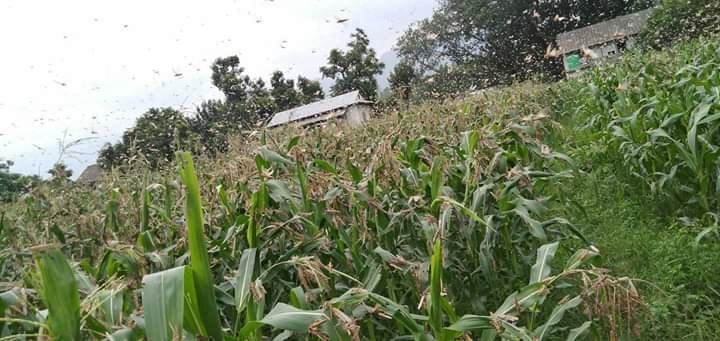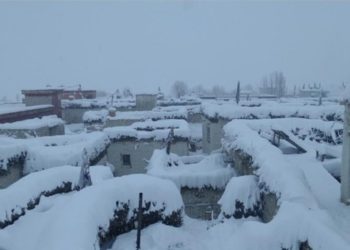KATHMANDU: Locusts that entered Nepal from India have started disappearing due to unfavorable environment.
Sahadev Humagain, Chief at the Plant Quarantine and Pesticide Management Center, said that the locusts have started dying due to unfavorable weather in the country.
According to him, locusts cannot survive in temperatures below 22 degrees Celsius. He said that many locusts had died in Baglung, Rukum East and Kalikot.
It is reported that locusts have died in other places as well. However, still a small number of locusts have their presence in Nepal particularly in forest areas.
“The number has continued to declining due to the monsoon,” he said.
According to the Center, other swarms of locusts are unlikely to enter Nepal due to the prevailing easterly winds.
The locusts had entered Nepal for the first time on June 27 via Bara and Parsa. The center estimates that the number of locusts entering Nepal was around 5 to 7 million. The locusts, which can fly at an altitude of 1,600 to 1,800 meters have reached 52 districts in the country.
The locusts have caused damage to maize, vegetables and soybean crops in Makwanpur, Dang, Pyuthan, Arghakhanchi and Palpa districts.









Comment